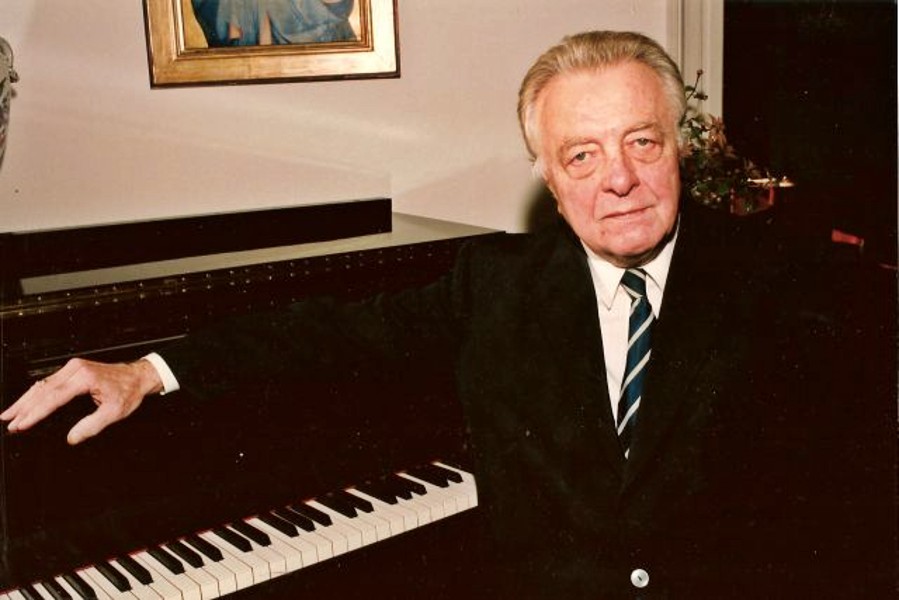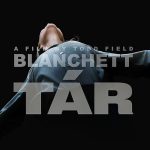by Wanda Dobrovská
Ilja Hurník (1922-2013) was one of the leading personalities of Czech musical life for many decades. He spent his childhood in Ostrava (his birthplace was Poruba, now part of Ostrava) and he loved to return there throughout his life, although he soon settled in Prague, where his parents moved when he was sixteen. His path to music was a direct one, and after his studies he worked equally as a pianist, composer, popularizer and teacher, and in time also as a playwright and writer. He was a founding member of the chamber association Lyra Pragensis (1967), was active in the Society of Czech Composers, the European Cultural Club, the Artistic Club (chairman 1992-1999), and was an honorary member of various clubs, societies and foundations.
Lukáš, how did your father’s musical profession translate into his role as a father?
My dad handled his fatherly role brilliantly. He didn’t have much time for me, but when he did, he made the most of it. We would go for walks around Prague and he would talk and talk, very interestingly, so I remembered everything. It was about history, architecture, food, statues and paintings. All carefully punctuated. When I went to the guidance counselor before first grade, I had such a vocabulary that they didn’t have enough charts.
We lived in a beautiful, but only two-room apartment. My dad worked in one, and my mom and I were in the other. And in this constellation, a threefold kind of situation occurred: when the tapping of a typewriter came through the door, it meant that Dad was writing literature. I wasn’t allowed to talk then, but I could sing. The other possibility was that there was a piano. Dad practiced that and I could lie on top of the piano and look at the keys or under the piano and watch the pedals. The third option was that nothing could be heard through the door. Dad was the one composing, sitting at the table and writing the music. And I could hardly do anything, especially sing.
Did he pressure you – his only child – to take up music?
Not really, on the contrary, he encouraged me in everything I was interested in. Sometimes he went overboard. When I became interested in architecture, he put me in the training of Mr. Kovář, the architect. We started by drawing a cone. He wasn’t very happy. I was supposed to improve it for next time and add a sphere. Again, no success. I didn’t go a third time. But of course they put me in piano at the folk art school. The professor hoped to finally raise a virtuoso, so we practiced Czerny’s elementary etudes over and over again. It turned out like the cones. Too bad. Today, I’d need to play from the page, but they didn’t teach me that.
What kind of music did Ilja Hurník focus on as a performer?
As a pianist he specialized in the impressionists and Janáček. Later he played with Pavel Štěpán and then with my mother in a piano duo. There the repertoire was very wide, and he also wrote a school of four-hand playing with a cycle of wonderful etudes. For example, you practice a giant spread chord across the whole keyboard, shared by four hands, and you can’t hear the “seams”.

Ilya Hurnik’s compositional legacy is immeasurable. It includes – according to publicly available sources – five operas, two ballets, orchestral and concertante works, works for piano and various chamber ensembles. There is also a huge number of vocal compositions, for solo singing and choir, and one should not forget the instructional works. How is this legacy available – in sheet music editions (for interested performers), in recordings (for listeners, dramaturgs, music historians)?
My dad was usually invited to write a piece, especially chamber ensembles, and he wrote it by hand, wrote out the parts, stuck it in an envelope, and mailed it in. There was no Xerox at first, and later Dad refused to acknowledge its existence. And so the performers got the only original. Nowadays, there’s hardly any chance of tracking down the sheet music. Groups broke up, singers got married and changed their names. We have two parts to some songs, but three others have disappeared. Prague Autumn commissioned an oratorio from Dad. Dad wrote it, the festival sent it to a Korean conductor, who rejected the piece, saying the text was in Czech and he didn’t understand it. But he didn’t send the music back. So Dad’s biblical oratorio is on a shelf somewhere in Seoul… Or they packed it with kim-chi.
What of this legacy “lives” in music, what deserves to live – and if it doesn’t, why?
Dad wrote a lot of chamber music. Quintets, trios, and duos toured the Friends of Music Clubs back then, giving concerts as often as three times a week. Today, that network has disintegrated and chamber music is hardly played at all. Paradoxically, a contemporary composer is more likely to succeed with an orchestral piece, because orchestras have their own subscription cycles and are in every major city. My dad has some great orchestral pieces: the Symphony, the Symphonietta, the Leporello, the absolutely riveting Klicper Overture, in my opinion. But in celebration of his 100th birthday, the programmers reached for the dances from the ballet Ondráš. That’s a work from his youth, and my father’s composing has come a long way since then.
How would you characterize Ilya Hurník’s music in terms of style?
Well, it’s probably closest to neoclassicism, but with many digressions. His oratorio Aesop is very modernist, with colourful elements that later came to be called clusters or aleatorics. A leap quite elsewhere, towards the Romantic, is his cantata Echo, to his own libretto. It is about a fairy who – enchanted in a rock – echoes the words that people say. But not all of them are kind. When she has to return evil words even to her beloved prince, she prefers to let herself be smashed to dust by the Storm.
And expressively? What did he like – and can you hear it in his music?
They are always formally refined wholes, often with a smiley face, but with a deeper, more serious layer. Superficial reviewers then usually talk about the musical puns, not realising that the humour is often an interpretation of something really serious.
What did he care about (in his profession, of course)?
The process of composing and getting an idea. If he didn’t get any music, he at least came up with a story idea. When he finished the piece, he wasn’t that interested. He has an unproduced opera, two years in the works, but I’ve never heard him say he regrets it never made it to the stage. It features the Virgin Mary, so it didn’t work under the Communists, and after the revolution another generation of composers took the initiative.
Ilja Hurník taught at the Prague Conservatory, the Academy of Performing Arts in Bratislava and the University of Ostrava. The fruit of his time in Bratislava is, among other things, the book Muse in the Field (1980) on musical ethics. What is musical ethics?
In the seventies, my father had trouble finding a job in Prague, but he was invited to Bratislava to their Academy of Performing Arts. The rector was Mr. Ferdinand Klinda. He said to dad when he arrived: “Lecture all you want.” So, besides the usual piano lessons, Dad lectured on psychology, ethics and tactics of musical operation. That is, what a performer can, must, must not, should not, and so on. How to construct a concert program, what to write in a brochure and so on. Then he published a book from that, The Muse in the Field.
Hurník’s literary work is extremely popular – his collection of beautiful short stories The Buglers of Jericho (1965) was followed by twenty-four more titles by 2012 (including the autobiographical Childhood in Silesia and The Final Report). In addition, he wrote screenplays and radio plays. In what way and how does this activity relate to his other activities?
Literature was another form of creation for him. He liked the speed. He would get an idea in the morning and by lunchtime the story was finished. No scores, no plotting, rehearsing, rehearsing and planning the premiere. In the last ten years, Dad didn’t write much music anymore, but he wrote one story a day. In longhand. Mom transcribed them into the computer. Some were published in his multicolored Notebook series. Most of them aren’t even about music anymore.
I know you’re looking after Ilya Hurnik’s legacy – what state is it in? Is it catalogued, are students of music and music education interested in it as a topic for their thesis or dissertation?
It’s a tragedy. It would take a systematist to make an inventory, number the pieces, track down lost pieces, compare different versions. Mrs. Vendula Vanickova decided to write her thesis on her father’s song cycles for soprano. She thought there were five, but she found 14. They intertwine in different ways, the versions differ in key, accompaniment…
You’re following in your father’s footsteps – you also chose music as your profession. You are a composer, a choirmaster, a publicist and a radio producer (for seventeen years you have been the head of the Czech Radio D major station). From this point of view, where do you place the legacy of Ilya Hurnik in a broader musical-cultural, perhaps even musical-historical (if it is not too early for that) context?
I don’t dare to define it. In the 1960s he was a key figure in the musical scene, both as a pianist (he filled the Rudolfinum or Smetanka with his recitals every year) and as a composer. This year we celebrate the centenary of his birth and not a single note of his has been played at any Prague festival or subscription concert of any Prague orchestra. He simply fell through the dramaturgical net. It is different in Ostrava, Opava, Hradec Králové, Pardubice. I love going there and listening to my father’s music live. I think it’s very good.




